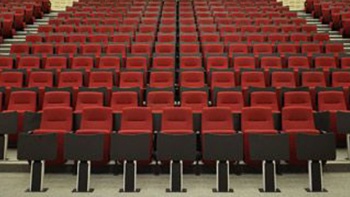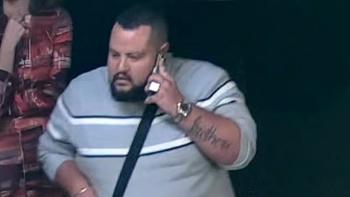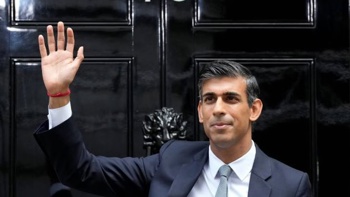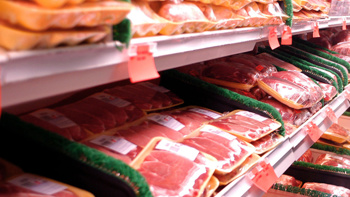In the battle for votes, these days it’s not just about airtime or hoardings. It’s also about followers and what’s trending.
From the running guy and the hammer trend, to ASMR and the Roman Empire, Tik Tok and Instagram are dominating the online space.
According to Google, 40 per cent of Gen Z now use the apps as a search engine. So when it comes to capturing a generation of social media swing votes, they’re crucial campaigning platforms.
But is the social media algorithm fair when it comes to the digital campaign trail, and how does it work?
Massey University marketing professor and social media expert Bodo Lang says you’re more likely to see content that you want, not the content you might need to make an informed decision on an issue.
“If you like watching videos, you’ll get more videos. If they’re about certain types of topics, you will get more types of videos with that topic.
“So it’s really in these social media platforms’ interest to show you as much content as possible that is likely to be liked by you and engaged with.”
Because the longer your eyeballs stay on that content, the longer they’ll linger on ads as well.
That means if you like watching National’s posts, you’ll get more blue content and if you like watching Labour’s, you’ll get more red content.
“It really narrows your field of vision and your exposure to different types of arguments and different types of positions on all sorts of issues. Whatever they are.”
It also means if you rely solely on social media as a news source, you might not be getting a fair picture of the political landscape.
/cloudfront-ap-southeast-2.images.arcpublishing.com/nzme/B7JNYOFOG5CJVOPKE6ZPBBPXRU.jpg) Concern Tik Tok's algorithm may not give you a clear picture of the politcal landscape. Photo / 123rf
Concern Tik Tok's algorithm may not give you a clear picture of the politcal landscape. Photo / 123rf
“I think it’s a real problem, because what it means is that we become very single minded and we just see all the stuff that we agree with, and nothing that might challenge us or might rattle our cage.”
Bodo Lang says unlike social media, traditional platforms like TV, print and radio are a much more even playing field.
“So traditional advertising, traditional marketing communications - you drive past an intersection in your neighbourhood, you will see all of the billboards set up by all of the parties.
“That’s healthy because it just means that awareness goes up - you know, that all these parties are actually competing.”
NZ Herald Focus spoke to a range of Gen Z students at Auckland University, many of whom only saw one or two party’s social media content. Most say the content they saw was paid-for ads, or organic content from parties they liked, followed or supported.
While the algorithm is skewing content, there’s concern it also stands to skew the results on October 14.
“I think it’s highly likely to have some impact on the election, because what happens is that not all political parties are equally represented on social media now,” says Bodo Lang.
That representation is most confronting on Tik Tok. National has 58,000 Tik Tok followers, Labour just 4000.
But equally on Instagram Labour has just over 74,000 followers, and National just over 36,000.
New research out of Victoria University backs up the numbers - revealing many political parties have been slow off the mark to make the most of social media campaigning.
The 2023 New Zealand Social Media Study analysed more than 600 Facebook posts by politicians and parties, over the course of a week. Almost all parties researched last election were posting less on social media this year, other than Act.
/cloudfront-ap-southeast-2.images.arcpublishing.com/nzme/Z6TIVLE4RFEFTP2ZBQSXCN27YU.jpg) Act Party leader David Seymour uses a laptop while flying from Rotorua to New Plymouth during the election campaign. Photo / Mike Scott
Act Party leader David Seymour uses a laptop while flying from Rotorua to New Plymouth during the election campaign. Photo / Mike Scott
“So the parties that are doing it and they are doing it well, that’s, you know, where it’s resonating. They will just start spinning there, and that gives them a much greater share of voice, and that means that they will get more votes, you know, it’s that simple.”
Lang says to even the playing field, parties should better utilise social media, and young people should be encouraged not to ignore traditional platforms.
“[But] probably the most powerful one would be to legislate social media companies to actually let go of their algorithms, or soften the algorithms to make sure that 20 per cent of the content that you see will not be, you know, based on whatever it is that you’ve just last watched.”
Right now, the Electoral Commission says it doesn’t have a role when it comes to regulating the content of election advertising or how it’s delivered. But it’s encouraging voters to use a variety of sources when considering who they vote for.
But with many young voters sticking to social media, it could be easier said than done, and instead of helping democracy, it’s thought that the like button and its platforms could actually be more of a threat.
“I think social media definitely has the ability to hijack the election for certain age groups, which is really, really concerning,” says Lang.
Take your Radio, Podcasts and Music with you









